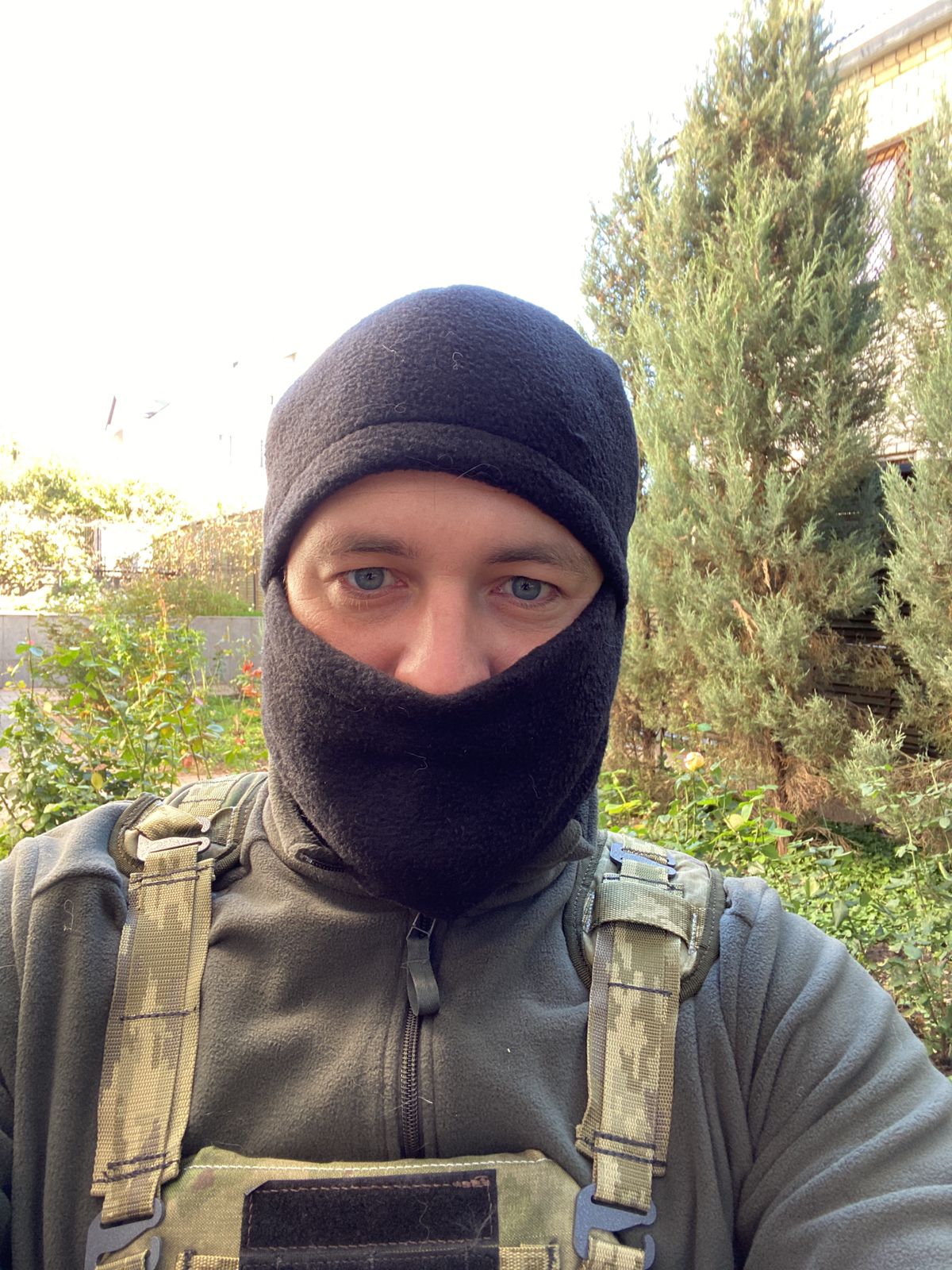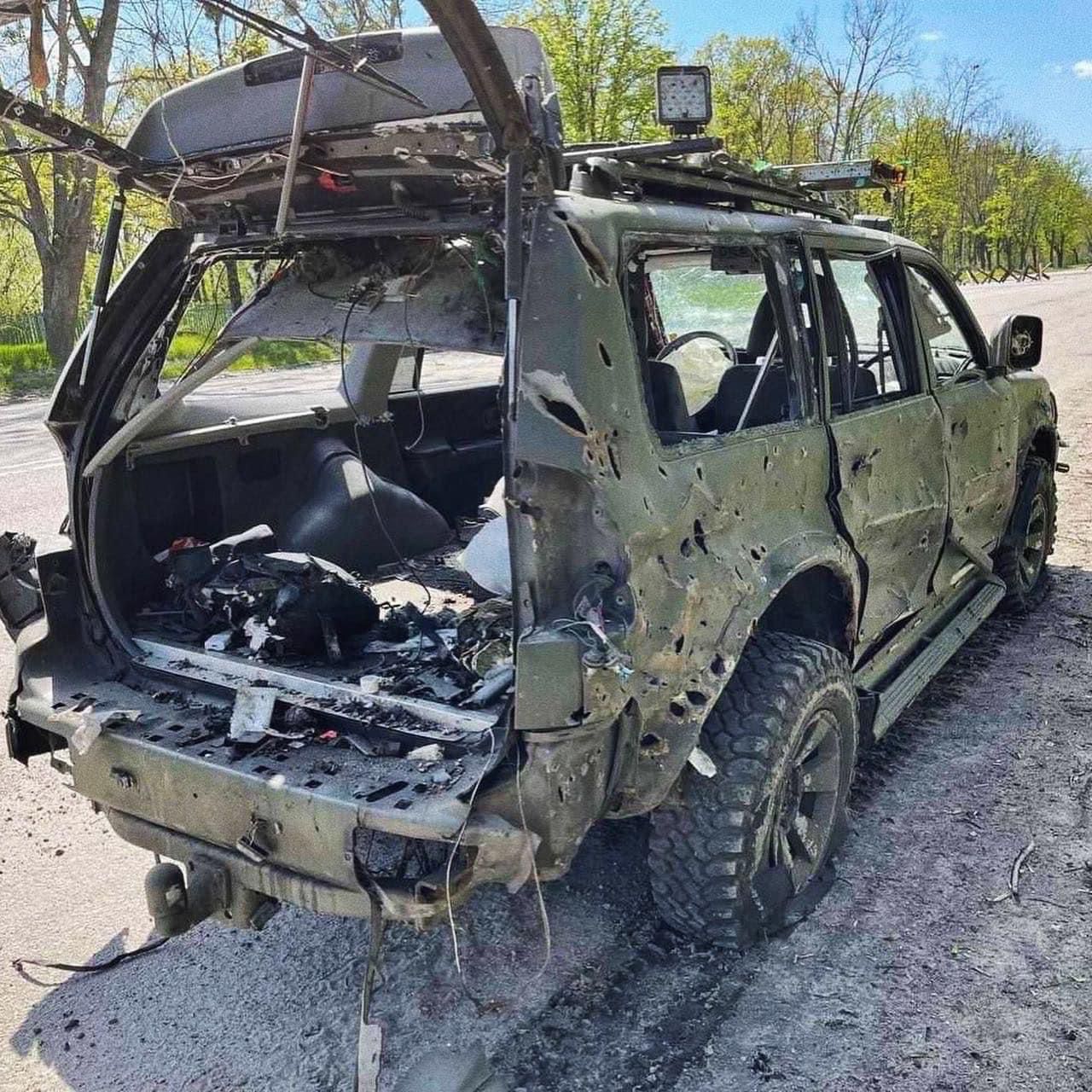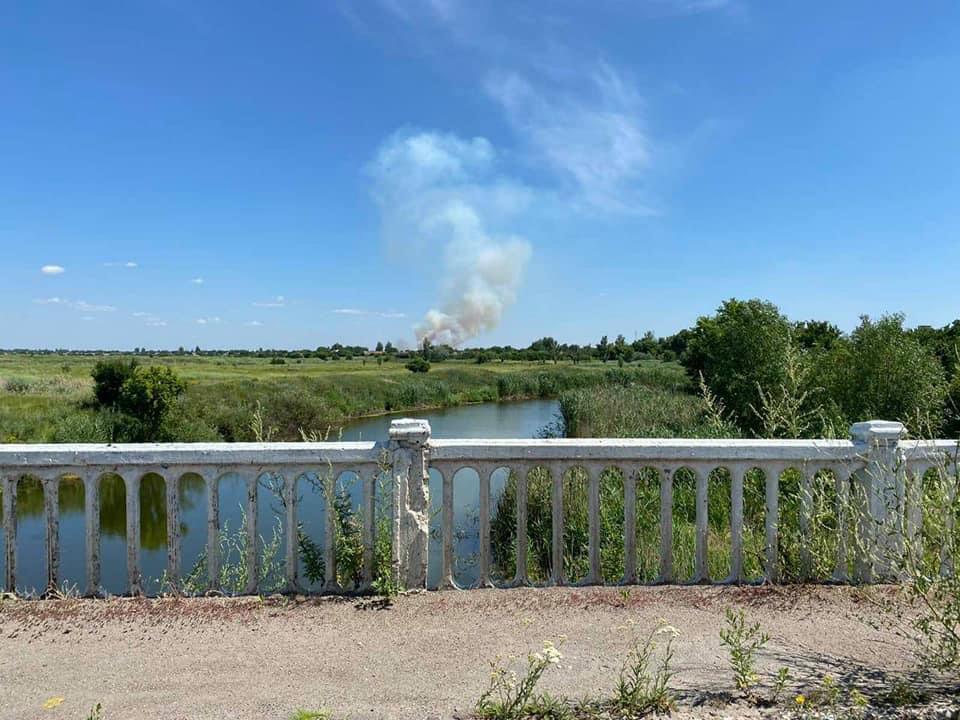The Media Line has spoken exclusively with Ukrainian units battling Russian forces in Zaporizhzhia Oblast since the Russian annexation and forced deportation of civilians in the region.
“We didn’t feel any change on the front lines since the [illegal] referendum. Most of the region was unfortunately occupied in the first weeks of the war. But now we see that the brutal bombing of the regional center, in the city of Zaporizhzhia itself,” Alexi [not his real name], a 33-year-old Ukrainian soldier and medic on the front line, explains.

Alexi takes a selfie while fighting north of the Dnieper River. (Courtesy Alexi)
Zaporizhzhia is one of four regions that Russian President Vladimir Putin recently annexed, following referendums in these territories late last month. In total, Moscow has now laid claim to some 15% of Ukrainian territory.
The referendums have been condemned by the United Nations and world leaders, including US President Joe Biden and French President Emmanuel Macron, as well as international bodies such as NATO, the European Union, and the Organization for Security and Cooperation in Europe.
According to Alexi, who has been in the south since the start of the Russian invasion on February 24, these annexations and the later announcement by Putin of the mobilization of Russian civilians to fight in Ukraine have changed little on the ground.
“In our direction, there has been no change for the time being since the mobilization,” Alexi tells The Media Line, adding, “We are [still fighting a] professional army and PMCs, as well as Chechens. But we expect them here.”
In response to the Ukrainian gains in the south and the recent attack on Crimean Bridge, the Russians have intensified their air campaign and launched a series of allegedly Iranian-made suicide drone attacks on key Ukrainian infrastructure, something Alexi has seen firsthand.

Destroyed Russian vehicle south of Zaporizhzhia city. (Courtesy Alexi)
“That is because of Putin’s anger; in his opinion [the Zaporizhzhia region] is already part of Russia. But it is not and will always be [part of] Ukraine,” he added.
This holiday season, give to:
Truth and understanding
The Media Line's intrepid correspondents are in Israel, Gaza, Lebanon, Syria and Pakistan providing first-person reporting.
They all said they cover it.
We see it.
We report with just one agenda: the truth.


Despite this, the fight in the south is intensifying, especially as the advancing Ukrainian forces approach Russian-defended villages along the Dnieper River.
“The battle here is mad. … Kyiv was easy in comparison,” a rocket launcher operator near the Dnieper River told The Media Line. Nicholas [also not his real name], who was recently injured by Russian shrapnel, added that Russia’s tactics in the area are becoming more extreme.

Nicholas holding rocket-propelled grenade launcher south of Zaporizhzhia city. (Courtesy Nicholas)
“The Russians are currently forcibly evacuating Ukrainian citizens from the area but it will not work; it is because they [the Russians] understand that now it’s a high possibility they will lose these regions.”

A recent battle near one of the Dnieper River tributaries in the southern Zaporizhzhia Oblast. (Courtesy Nicholas)
The next major objective of the Ukrainian forces in the area is to secure the Kakhovka dam and Antonivka Road Bridge along the Dnieper River.
“This is obviously a key objective of ours, but the Russians have mined Kakhovka Hydroelectric Power Plant,” Nicholas says.
He adds, if his troops manage to occupy Kherson, there is a real possibility and concern that the Russians will try to blow up this bridge.

A rocket unit destroying a Russian tank and supply vehicle in the southern Zaporizhzhia Oblast. (Courtesy Nicholas)
This is something reiterated by Alexi, who has been supporting Nicholas’ unit in its advances south.

Destruction at a village recently liberated by Nicholas’ unit in the southern Zaporizhzhia Oblast. (Courtesy Nicholas)
“Strategically, the bridges across the Dnieper are the main supply arteries for troops, for both us and the invaders. Therefore, I think that big battles for bridges in our region and Kherson are still ahead.”
Despite his optimism, garnered from Ukrainian victories on the battlefield, particularly the recent offensive that liberated much of Kharkiv Oblast in the east, Alexi believes the West can do more.
“This war makes us very angry,” the medic states, “[but] the Kharkiv operation showed that if the Russian front was broken through, they fled and surrendered.”
He adds that the world must do more.
“If Hitler had been stopped in Poland or Czechoslovakia, there would have been no France, Britain, Africa, the USSR, millions of victims, etc. Now we stop the crazy dictator at the very beginning. So, help us defeat him.”